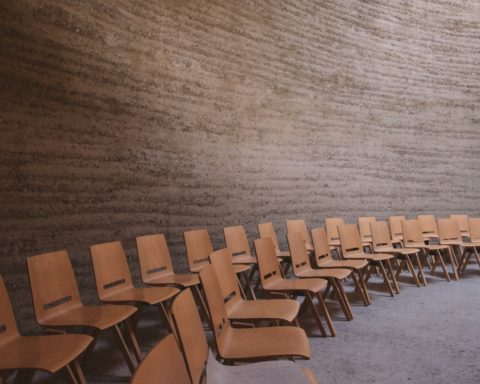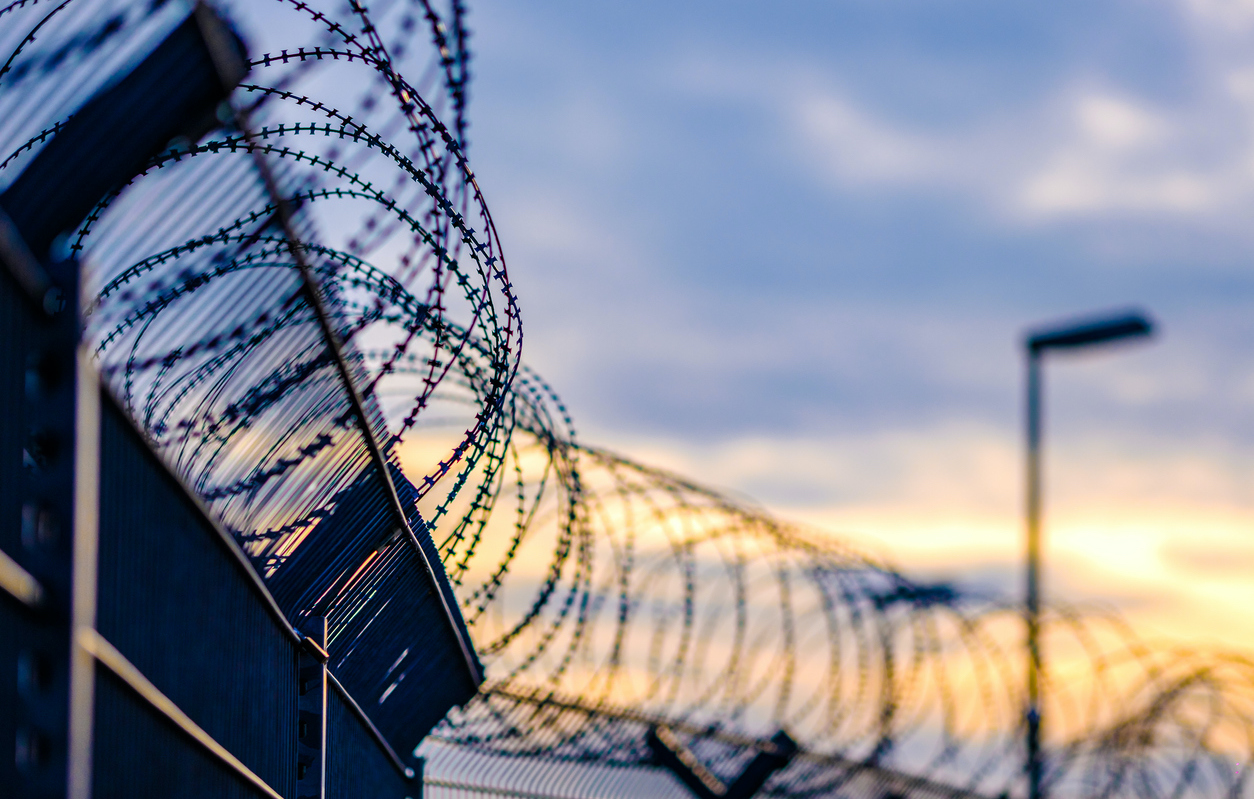I sat across from the prison chaplain and listened as she explained that the facility was required to allow me time and a designated space to observe my faith. The chaplain said that she could help get me what I needed in the way of special kosher foods and certain specific religious items for holidays. I thanked her, shook her hand, and stood to leave. Just as my fingers reached the door handle, she spoke again. “Oh, and I’ve ordered you a Tanakh so you can have your own Bible.” She pronounced it “tan-eck,” but I knew what she meant: a Torah, a Tanakh, a book containing the Neviim, the Kethuvim, and the first five books popularly known as “the Old Testament.” I was caught off guard by a sudden and rapidly-developing lump in my throat. I desperately attempted to choke it back down but it met heavy resistance at the equally surprising tightness that had begun to expand in my chest. I felt tears stinging my eyes and was powerless to hold them in.
I was confused as to why, exactly, I was crying, and angry at myself for this display of emotion in front of someone I had just met. I know myself to be someone who feels deeply but is more than capable of deciding when and how I demonstrate those feelings and who I allow to witness them. I didn’t weep in the courtroom during my sentencing or on the phone in diagnostics when my sister-in-law broke the news that one of our dogs had died. I’m well-practiced in acceptance and have become skilled at taking in the scary, the painful, and the heartbreaking, understanding the “is what it is,” and letting go of “all that is overwhelming.” As it goes in the prayer, I’ve often asked for serenity where it concerns acceptance of those things I cannot change.
I do my absolute best to influence the world around me in the positive ways I can every moment of every day, but I also realize that there is a limit to that influence. I’m one person and I come from a very different space than many of those who surround me. I’m a liberal, Canadian, Jewish woman who grew up in a predominantly Southern Baptist town in Georgia. I also spent the last year of my life inside jails and prisons located in areas where the communities identify as mostly Republican and majority Christian. That isn’t necessarily atypical for me — it’s what I’ve known most of my life. But it has become more apparent since I’ve been locked up how alone I really am, or feel, I guess. At least at home, I share my unique spiritual, political, and cultural views with my family. In the southern correctional system, I am constantly reminded that I am “other.” I am used to being an outsider.
I also feel that I might be an uncomfortable contradiction to many I meet, in the sense that Jesus is not my personal Lord and Savior but I am not without God and I am not lacking peace or spiritual direction. Perhaps people that meet me here see someone who is happy and kind for no other reason but that it’s good and right to be so. I don’t wrestle with emptiness the way some people might expect. Maybe they don’t know what to make of me, maybe they are confused by me, or maybe they believe I’m faking it. Or maybe they don’t see any of that. Who knows.
But standing in the threshold of my prison chaplain’s office, crying, I realized how much I’ve missed the rituals, words, and community that connote my Otherness. I’ve spent this year telling myself that it’s not really that big of a deal anyway. I wasn’t even being that great of a Jew. I ate shellfish, bacon, and ham and I’ve spent my adult life covering my skin in colorful tattoos. I’ve missed High Holiday services for the past two years. It didn’t really bother me that I had no access to a rabbi for so long. Or that my Star of David tattoos were photographed and listed in a federal database as being potentially gang-related. Or that random strangers I’ve never spoken more than five words to feel justified in wrinkling their nose at me and asking “are you Wiccan?” because they don’t know the different between a six-pointed star and a pentagram.
So why now does it affect me so strongly to be told that I can have a Tanakh? I can’t answer that. I really can’t. But one thing that my faith and heritage have shown me is that sometimes the question itself, the struggle, the wrestling match, the “different,” the “unique,” the “other” or “outside” has its own noble beauty. Creation without destruction, lines without punctuation, the flow of time or tears without necessity for resolution.
Still crying, I turned and walked through the doorway.

This work is licensed under a Creative Commons Attribution 4.0 International License.





